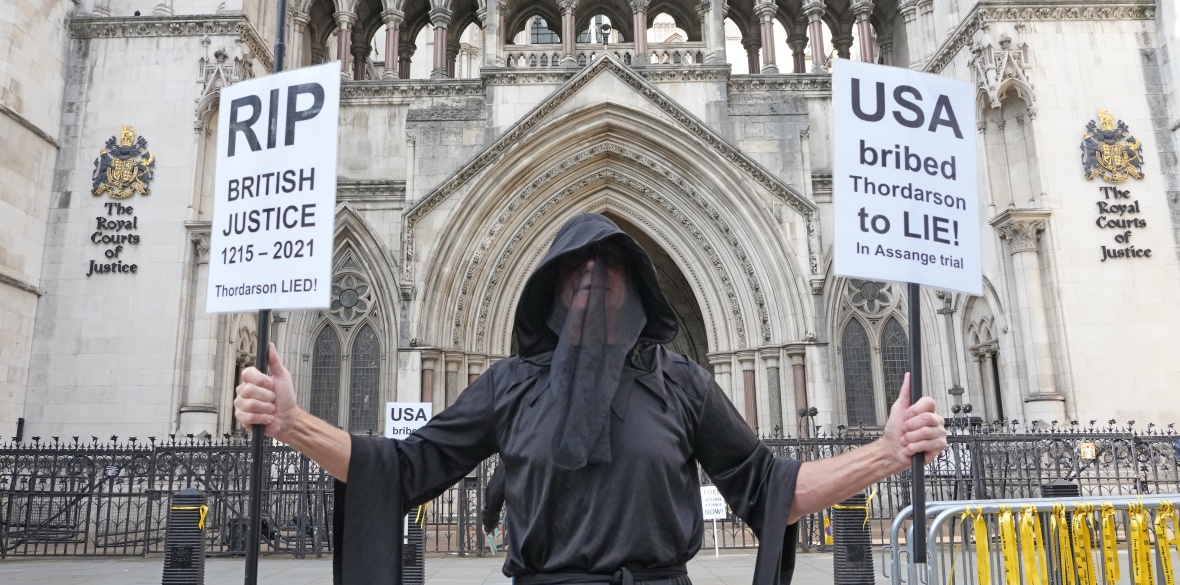‘Stop Vetoing Peace,’ Rabbis Tell Biden at UN Security Council Protest
Original article by JULIA CONLEY republished from Common Dreams under Creative Commons (CC BY-NC-ND 3.0).

“The U.N. was created in the aftermath of World War II and the Holocaust, with the very intention of ensuring ‘Never Again,'” said Rabbis for Ceasefire. “We are here as Jews, as rabbis, to urge the U.N. to follow through.”
After arriving at the United Nations headquarters on Tuesday, ostensibly for a scheduled tour, three dozen rabbis and rabbinical students made their way into the U.N. Security Council’s chamber to stage the latest high-profile demonstration demanding the United States end its opposition to a cease-fire in Gaza.
The rabbis—whose action was organized by Rabbis for Cease-fire, Jews for Racial and Economic Justice, Jewish Voice for Peace, and IfNotNow—displayed banners with messages for U.S. President Joe Biden: “Biden: The World Says Cease-Fire,” and “Biden: Stop Vetoing Peace.”
The protest came weeks after the U.S. alone vetoed a U.N. Security Council resolution calling for Israel to end its bombardment of Gaza, which has killed at least 23,210 people, injured more than 59,100, and left thousands more missing and feared dead under rubble, as the population of the enclave faces starvation and disease stemming from Israel’s blockade.
“[President Joe] Biden and the U.S. must stop vetoing peace and end Israel’s bombing and starvation of Gaza,” said IfNotNow.
In addition to vetoing the Security Council measure last month, the U.S. abstained from voting on a resolution to increase humanitarian aid to Gaza and opposed a U.N. General Assembly resolution calling for a cease-fire.
The country’s isolated stance was starkly illustrated by the latter vote, with 153 nations supporting the cease-fire, including longtime U.S. allies like Canada, France, and Spain backing the resolution, and only nine countries joining the United States.
“Since the Biden administration is consistently, single-handedly blocking the U.N. from taking any meaningful action for a cease-fire, we are organizing 36 rabbis and rabbinical students from seven different states to come to the U.N. themselves, and say, ‘We’re speaking for the people, this is a moral call,'” Sophie Ellman-Golan, communications director for Jews for Racial and Economic Justice, told HuffPost.
Organizers said at a press conference after the protesters were escorted out of the building that six of the rabbis had gained access to the U.N. General Assembly floor, where they displayed one of the banners to the assembled leaders.
HuffPost reported that one of the rabbis signaled the beginning of the protest during the tour by blowing into a traditional shofar horn, while Rabbis for Cease-fire founder and lead organizer Alissa Wise quoted the biblical Book of Isaiah.
“They shall beat their swords into plowshares, and their spears into pruning hooks,” said Wise. “Nation shall not lift up swords against nation. Neither shall they learn war anymore.”
The groups called on the U.S. and all U.N. members to:
- Reaffirm and recommit to the goals of the United Nations Charter and the Universal Declaration of Human Rights, taking meaningful action to stop the slaughter of Palestinians in Gaza;
- Hold another Security Council vote to pass a resolution for cease-fire that includes lifting the siege and hostage exchange; and
- Bring to the General Assembly a resolution calling for appropriate accountability measures in line with international law, including an immediate arms embargo.
“The U.N. was created in the aftermath of World War II and the Holocaust, with the very intention of ensuring ‘Never Again,'” said Rabbis for Cease-fire. “We are here as Jews, as rabbis, to urge the U.N. to follow through on this noble mission. Never again means never again for any of us.”
An organizer said as the rabbis assembled that “the U.N. is the appropriate place for meaningful action for cease-fire and accountability for Israel’s war crimes.”
The demonstration came two days before the International Court of Justice, the U.N.’s top judicial body, is set to hold a hearing on South Africa’s lawsuit claiming Israel has committed acts of genocide in Gaza. Turkey, Malaysia, and the Organization of Islamic Cooperation have all expressed support for South Africa’s claim, while Jordan indicated last week it had filed documents to submit a Declaration of Intervention at the court, backing the lawsuit.
More than 900 worldwide civil society groups have joined a call for other governments to submit Declarations of Intervention to bolster South Africa’s case.
The Biden administration said Tuesday that South Africa’s case is “meritless,” despite the country’s detailed, 84-page complaint highlighting specific calls from Israeli officials to wipe out the population of Gaza and force them to leave the enclave.
“The U.S.,” said Rabbis for Cease-fire, “is standing in the way of the international community taking action to save lives.”
Original article by JULIA CONLEY republished from Common Dreams under Creative Commons (CC BY-NC-ND 3.0).
- 500 American Jews Arrested On Capitol Hill Demanding Ceasefire, End To Genocide Of Palestinians ›
- Chained To White House Fence, Jewish Elders Chant ‘Cease-Fire Not Genocide’ ›
- ‘Never Again For Anyone’: Jewish Protesters Demanding Gaza Cease-Fire Arrested In Grand Central Station ›
- US Rabbis Rally At UN, Urging Immediate Cease-Fire In Gaza ›
- Jewish Peace Activists Across The US Call For Immediate Ceasefire … ›



